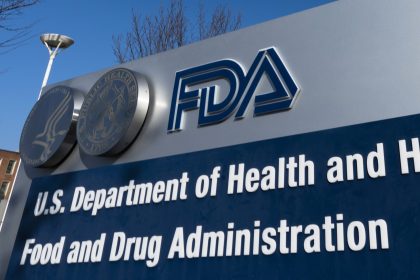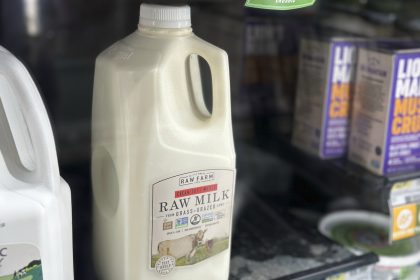What Do Weight Loss Drugs Mean for a Diet Industry Built on Eating Less and Exercising More?

NEW YORK (AP) — Ever since college, Brad Jobling struggled with his weight, fluctuating between a low of 155 pounds when he was in his 30s to as high as 220. He spent a decade tracking calories on WeightWatchers, but the pounds he dropped always crept back onto his 5-foot-5-inch frame.
A little over a year ago, the 58-year-old Manhattan resident went on a new weight loss drug called Wegovy. He’s lost 30 pounds, and has started eating healthier food and exercising — the habits behind many commercial diet plans and decades of conventional wisdom on sustainable weight loss.
Yet Jobling’s experience also has altered his perspective on dieting. He now sees obesity as a disease that requires medical intervention, not just behavioral changes. In fact, he thinks he will need to stay on a drug like Wegovy for the rest of his life even though it has taken some of the joy out of eating.
“I don’t see how you can maintain (the weight) without medication,” Jobling said. “Obviously, it’s all about self-control. But I think it’s less of a struggle to really maintain healthy eating when you got that assistance.”
Like the lives of the people taking them, recent injected drugs like Wegovy and its predecessor, the diabetes medication Ozempic, are reshaping the U.S. health and fitness industries. They have proven successful in eliminating unwanted pounds more quickly and easily than consuming fewer and burning more calories alone. Such is their disruptive power that even established diet companies like WeightWatchers and brands like Lean Cuisine are getting makeovers.
Although celebrities like Oprah Winfrey have spoken publicly of the drugs as revolutionary, some health experts worry that businesses without any expertise will start dispensing the prescription medications along with bad advice and unproven therapies.
A DEMAND TOO BIG TO IGNORE
At least 3 million prescriptions for the class of medications known as GLP-1 agonists were issued each month in the U.S. during the 12 months that ended in March, according to data from health technology company IQVIA. They include semaglutide, the drug in Ozempic and Wegovy, and tirzepatide, the drug in Mounjaro and Zepbound. Morgan Stanley research analysts have estimated that 24 million people, or 7% of the U.S. population, will be using GLPT-1 drugs by 2035.
The world’s leading diet programs have taken note of such statistics and incorporated the popular drugs into their existing subscription plans.
WeightWatchers, which was founded in 1963, last year acquired telehealth provider Sequence, enabling members to get prescriptions for weight loss drugs. WeightWatchers is sticking with its focus on behavior change as the cornerstone of weight reduction but launched virtual clinics that provide customized exercise and nutrition plans, as well as prescription care, for individuals who want to lose 20% of their body weight on average.
“The weight loss space will be led by the acknowledgement that weight loss is a matter of health care,” WeightWatchers CEO Sima Sistani told analysts earlier this year. “This is a paradigm shift because weight loss has been and, unfortunately, often still is viewed as a vanity issue.”
The Mayo Clinic, which first offered a weight management plan in book form in 1949, has published an updated version of the longtime bestseller, titled “The Mayo Clinic Diet: Weight-Loss Medications Edition.”
The Mayo Clinic Diet program also has expanded to include access to weight loss drugs and advice on managing any side effects, according to Digital Wellness CEO Scott Penn, whose company developed an online platform for the original program.
The new drugs have made being very overweight “feel more medical as a condition,” he said.
GYMS AND DIET FOOD COMPANIES LOOK TO MUSCLE IN
Luxury athletic club operator Life Time launched a membership program last year that offers comprehensive medical testing, personalized training and a host of alternative therapies like cryotherapy. Members of the Miora program also can get Ozempic and other weight loss drugs through the medical staff of a clinic that opened in Minneapolis last year.
Jeff Zwiefel, executive director of Life Time Miora, called the new drugs a “game changer” for the fitness industry.
“We have an opportunity and an obligation and a responsibility to help people achieve results in conjunction with medical providers and make sure that that’s the way to go, ” he said.
Fitness chains are banking on the idea people on the drugs will lose enough weight to overcome any self-consciousness or physical limits that kept them from exercising. The gym franchise Equinox started a new personal training program in January for prescription-holders who want to preserve or build muscle mass as they shed unwanted pounds.
The world of drug-assisted weight loss also is altering the ambitions of food companies. Sales of SlimFast, a line of meal replacement shakes and snacks sold at supermarkets, have dropped as people turn to weight loss drugs and retailers cut shelf space for diet products, the brand’s parent company, Glanbia, told investors in February.
Since the drugs suppress the appetites of people taking them, Glanbia and other companies are marketing their products as a source of adequate nutrients for people taking GLP-1s. Swiss multinational Nestle SA thinks it can benefit from the drugs’ popularity and is expanding its Lean Cuisine frozen meals and OPTIFAST protein shakes.
“Diets are cool again,” Nestle SA CEO Ulf Mark Schneider told analysts in February. “It’s something that people used to do quietly on the side, uncertain about their outcomes.”
PROMISING RESULTS AND A WEALTH OF UNKNOWNS
Research has shown that about a third of people lose 5% or more of their body weight with diet and exercise alone, according to Dr. Louis Aronne, director of the Comprehensive Weight Control Center at Weill Cornell Medical school. In comparison, the medicine in the diabetes drug Mounjaro helped people with obesity or who are overweight lose at least a quarter of their weight when combined with restricted calories and exercise, a new study showed.
But some experts worry about businesses marketing the drugs or serving as fitness coaches for patients on the medications. Dr. Cian Wade, a health care consultant for the global strategy and management firm Kearney, said he’s concerned about a proliferation of clinics that don’t have as much experience with obesity and related health conditions.
“There’s a potential worry that for some patients, (the clinics) will not have the right expertise at hand to be able to appropriately manage the side effects, nutrition-related issues,” he said.
Since GLP-1 medications are so new, it’s unclear how many patients will stick with their drug regimens, which produce intolerable side effects for some people. Another reason patients may drop the drugs is cost. A month’s supply of Wegovy costs $1,300, and Zepbound is priced at $1,000.
‘THE NEW VERSION OF ME’
Lisa Donahey, 54, an actress and singer who lives in Los Angeles, started Mounjaro under a doctor’s care a year ago to address her Type 2 diabetes. At the time, Donahey, who is 5-foot-7-inches tall, weighed 260 pounds and was a veteran of diet plans like Jenny Craig, WeightWatchers and Nutrisystem.
Her weight has since dropped to a little less than 190 pounds. She goes to a gym. After always being cast as a character actor, she’s looking for new roles. Having used the medication to give her “a kick-start,” Donahey said she plans to wean herself off Mounjaro once she loses another 40 pounds.
“I had a sense of hopelessness that I was destined to be this way and just could not do it by myself,” she said. “Now, with my weight being managed and the new version of ‘me’ is emerging, I just feel so empowered, excited and hopeful.”

























